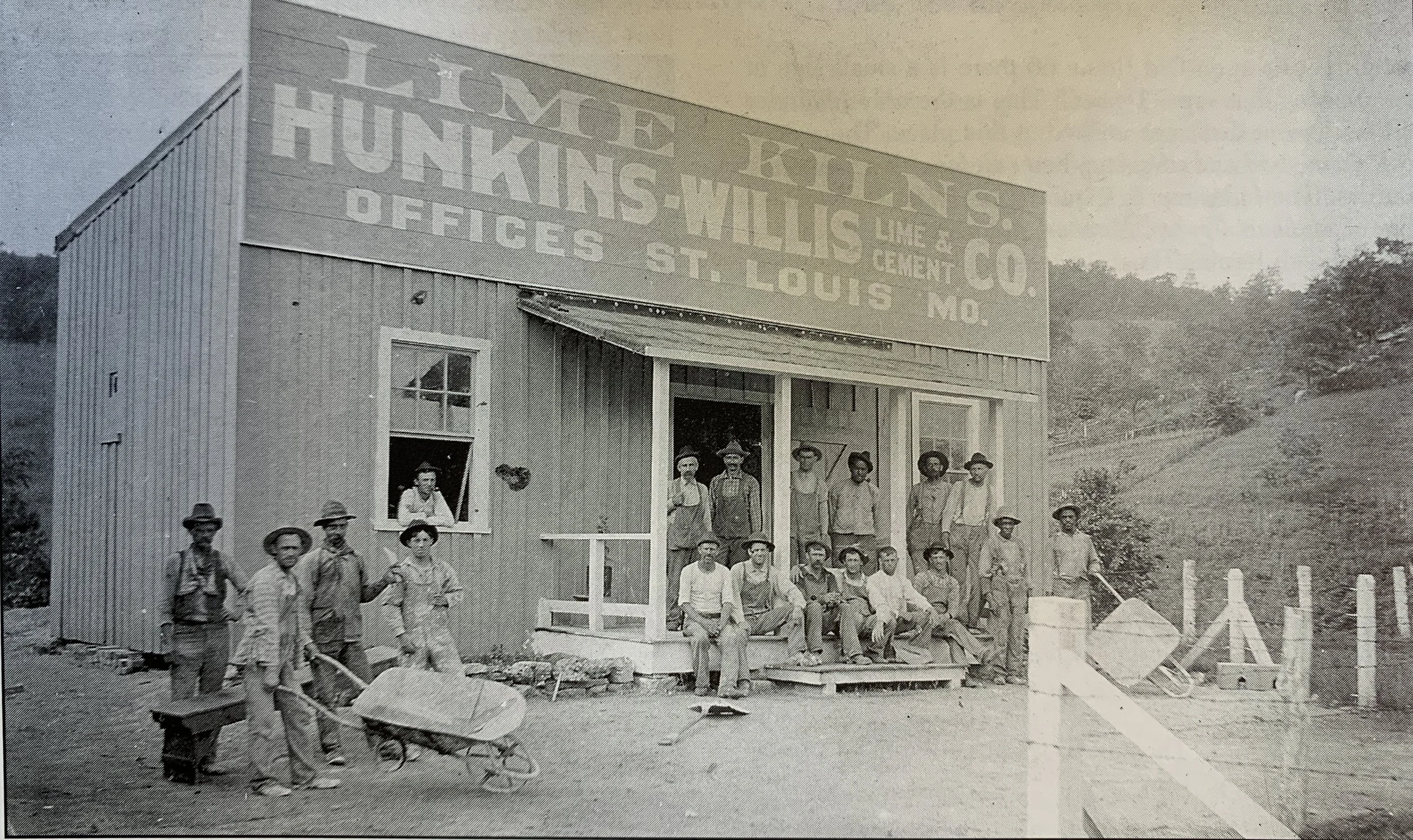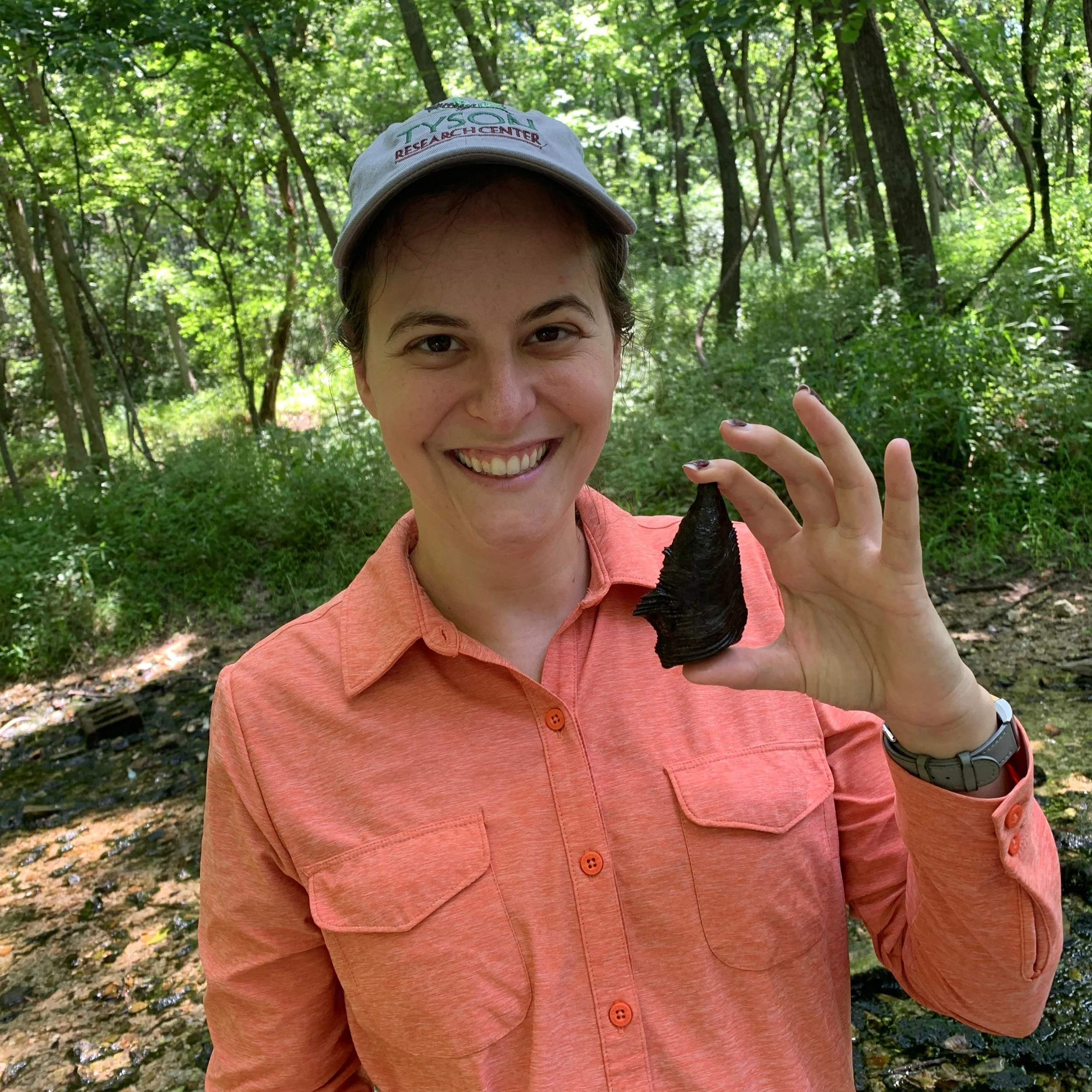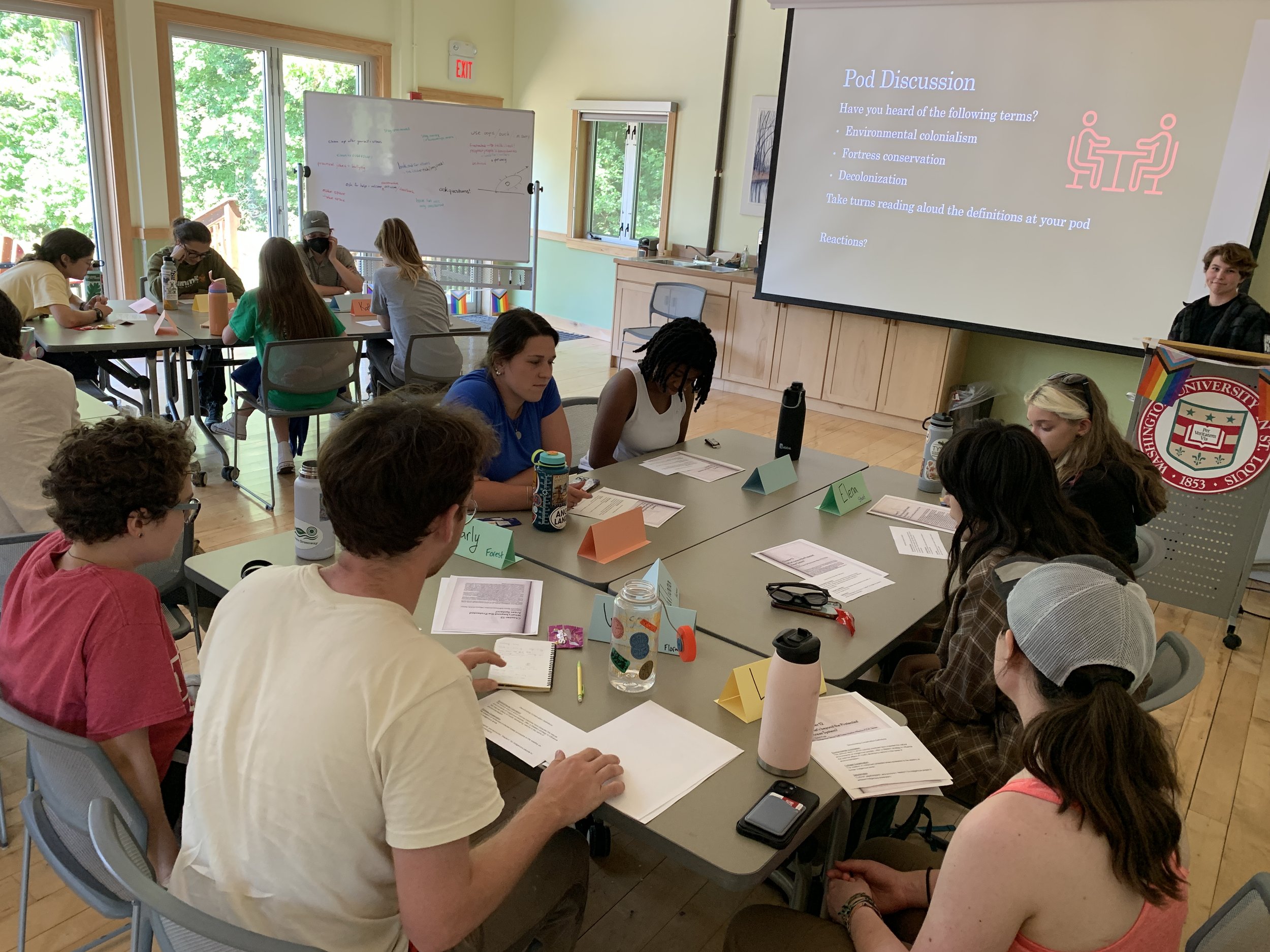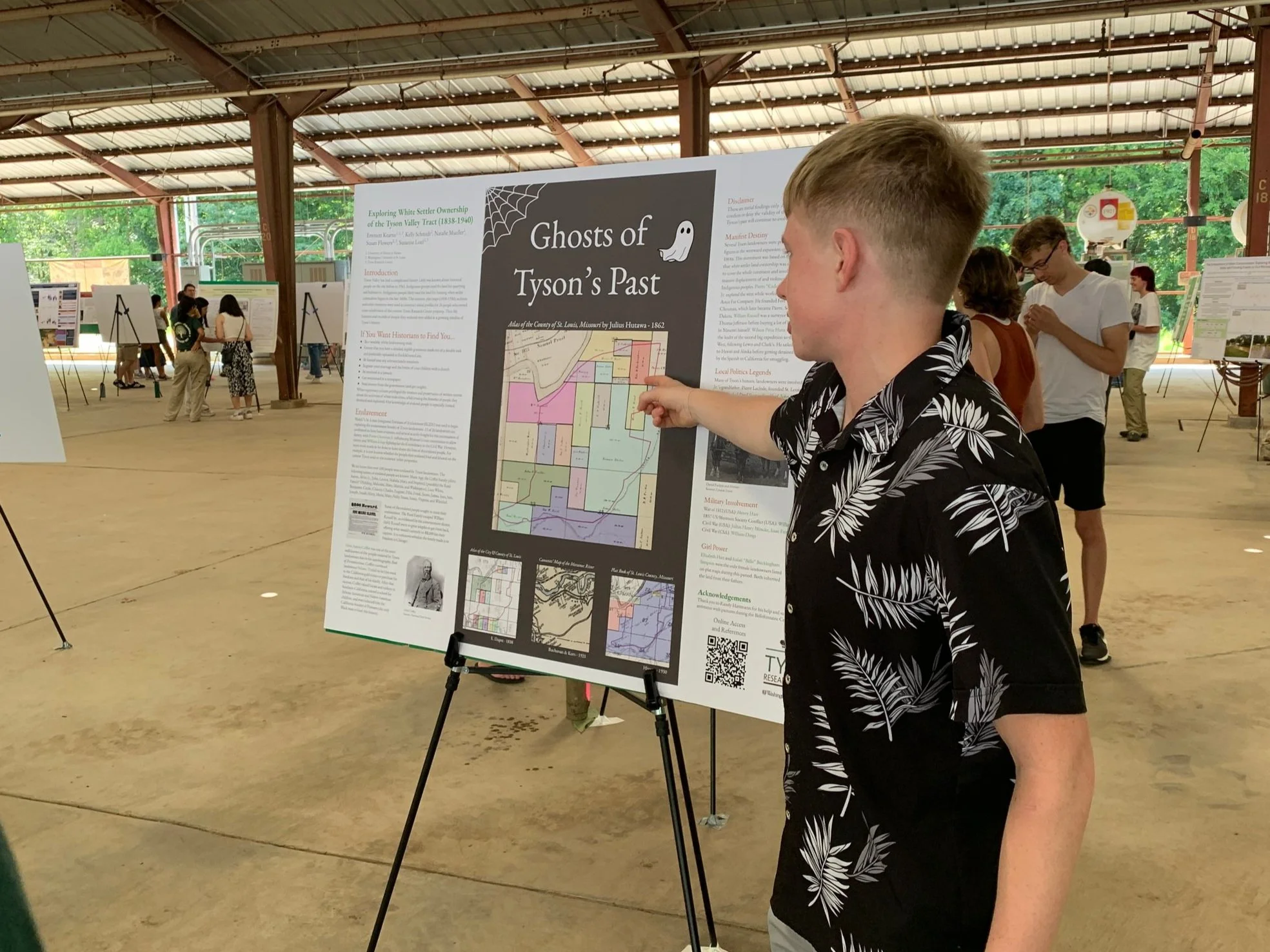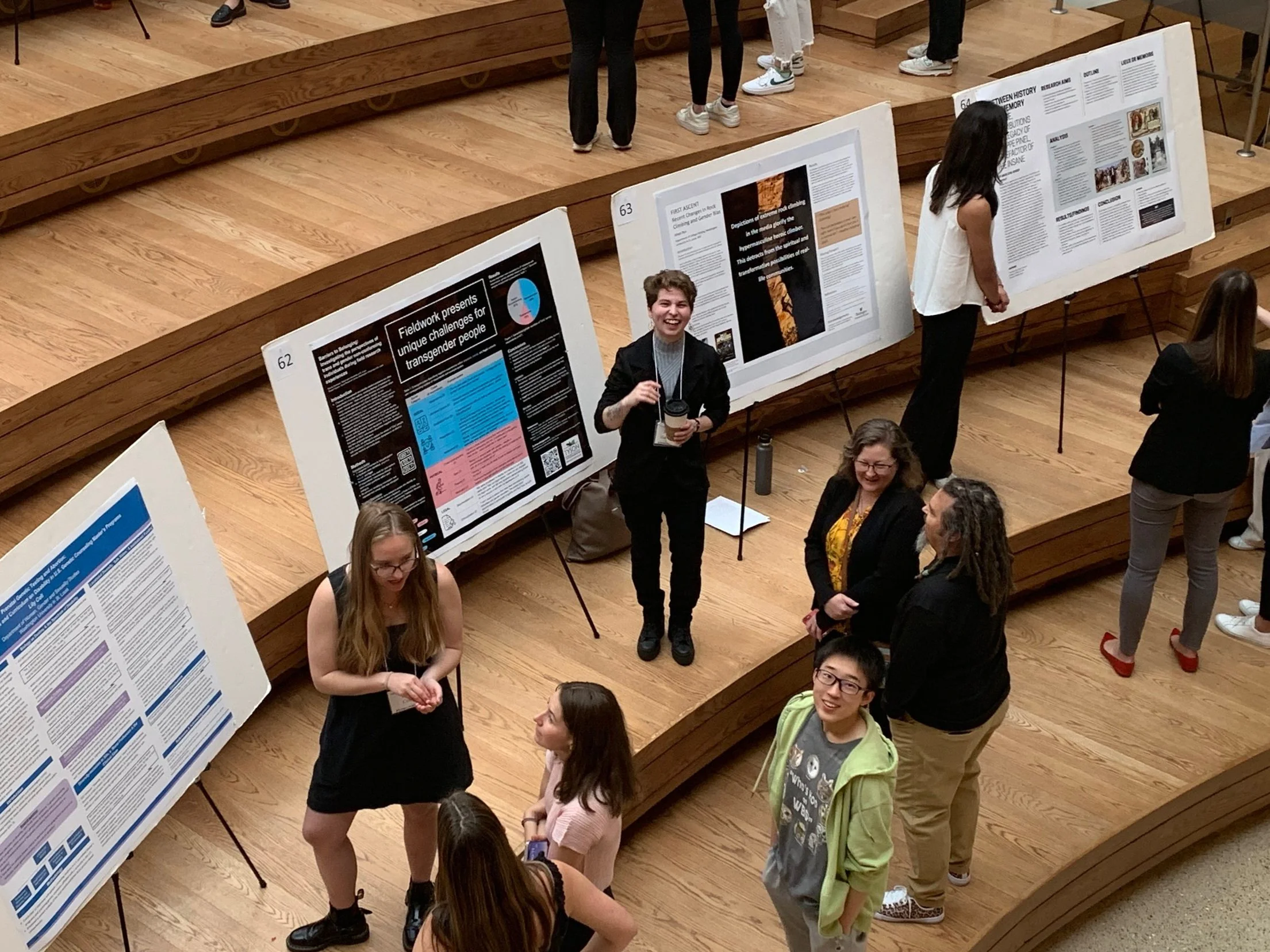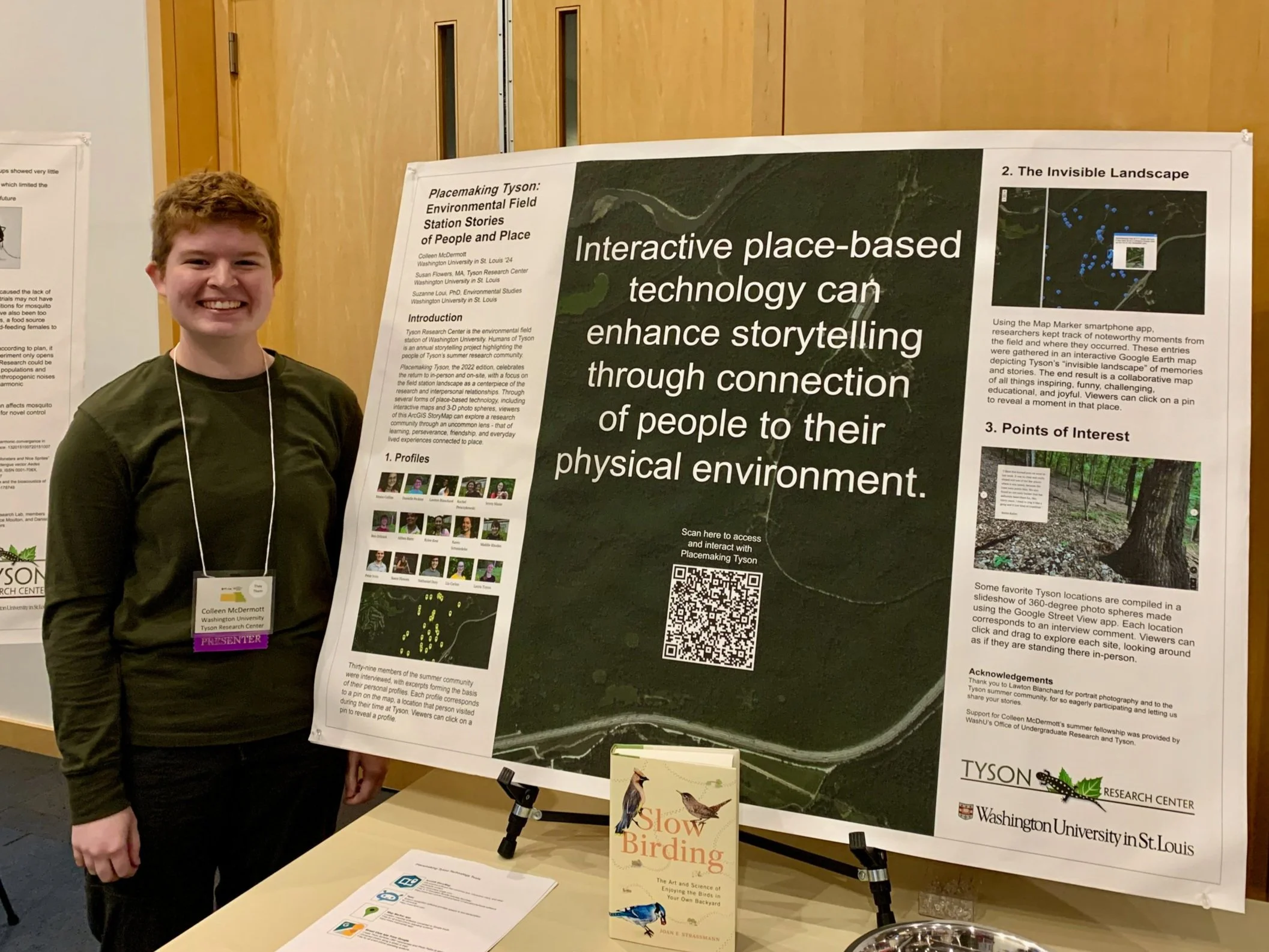research team mentors
Co-Principal Investigator
Susan Flowers, MA (Biology)
Education-Outreach-Inclusivity Coordinator
Tyson Research Center
Email: flowers@wustl.edu
Co-Principal Investigator
Kelly Schmidt, PhD (Public/Applied History and United States History)
Reparative Public Historian & Lecturer
Associate Director, WashU & Slavery Project
African and African American Studies Department
Washington University Libraries
Washington University in St. Louis
Email: kschmidt@wustl.edu
Research focus for summer 2025
There are two main focal areas for Team Humans for summer 2025.
1. Support for present Humans at Tyson
Team Humans tackles the many logistical challenges and behind-the-scenes supports necessary for the summer field season to run smoothly for both program participants and mentoring researchers. We strive to cultivate a sense of belonging, often responding to individual needs and adjusting for accommodations on the fly. Constant attention to inclusivity, diversity, equity, and accessibility is an important part of our work.
Our team plays a large role in the development, coordination, and assessment of community activities. We facilitate the weekly colloquium and the on-boarding of high school TERAs into their research teams. We support community events (weekly visiting environmental professionals and environmental mini-conference in July) and we plan and execute the end of field season Tyson Summer Research Symposium (serious fun) and Tyson Olympics (silly fun).
PLEASE NOTE: The Team Humans fellows are expected to drive Tyson vehicles for daily transportation from the WashU Danforth Campus to Tyson and back. A Missouri Class E license (or other state’s equivalent license), clean driving record, and years of driving experience is required.
This summer we expect fellows to be directly involved in gauging and improving community morale and in the development, pilot testing, and evaluation of new educational modules for the weekly colloquium.
2. Understanding of past Humans at Tyson
The Tyson History Project is an initiative to preserve, interpret, and communicate the complex history of Tyson Research Center, both prior to and since Washington University’s establishment of the 2000-acre environmental field station in 1963. We are using historical documents and artifacts to develop a more thorough understanding of how the Tyson Valley tract has been used over time.
A small interdisciplinary team of WashU faculty, staff, and students has been working together to retell the history of the Tyson landscape with particular attention given to the harm caused to humans and the land. Four primary eras have emerged from our initial archival recovery process started in 2023:
Prehistoric settlement and quarrying activities of Indigenous peoples
White settler colonialism including land ownership, enslavement, and natural resource extraction
US military ownership for ordnance storage during World War II and the Korean War
Past and present WashU research and education activities as part of Tyson’s field station operations
This summer we expect fellows to participate in research and writing activities that will contribute content to the Tyson Timeline, an ArcGIS StoryMap that will provide the general public access to a documented history of Tyson.
Skills
techniques
methods
You will develop a wide variety of transferable skills as part of Team Humans:
Planning, management, and execution of transportation logistics
Community building, morale management, and peer advocacy
Lesson planning and educational materials development
Assessment and evaluation using exit slips, interviews, and observation
Planning, coordination, and facilitation of large group events
Archival process for safe storage, organization, and accessibility of historical materials
Interpretation and synthesis of historical materials
Writing for publicly accessible communication
Use of ArcGIS StoryMap and related technologies
Much of the computer-based work will be performed using Microsoft Office (Word, Excel, PowerPoint), Google products (Drive, Docs, Sheets, Slides, Forms), WashU Box, and Slack.
research conditions
Over the course of the 10 weeks, our team may spend as much as 80% of the time working indoors, and much of that time working at our computers. The ability to work independently and self motivate is very important. However, supportive social interaction is also crucial and we will eat lunch outside with the Tyson community on a daily basis.
While a lot of our behind-the-scenes work takes place indoors, there are specific program components that take place in the field and spontaneous field excursions may occur. (We keep our field pants, long socks, and hiking boots handy!) Time spent in the field will include exposure to extreme heat, humidity, sun, and hazards like steep and rocky terrain, ticks, mosquitoes, and poison ivy.
There is also the possibility of off-site research excursions to archives, historical societies, cultural heritage centers, or possible relationship building with keepers of historical knowledge.
Team structure and opportunities for individual research
This summer Susan Flowers and Kelly Schmidt will work collaboratively with two undergraduate fellows. Daily in-person check-ins with Susan are likely and we will all meet together as a team on a weekly basis. On any given day there will be a lot of going back and forth on document drafts, Slack messaging, discussion of participants' ongoing experiences, and also time alone at the computer. Weekly one-on-ones will be scheduled as a check-in on the fellowship experience and mentee/mentor relationships.
After the first few weeks, there will be time to explore ideas and develop an individual project within the research foci described above. This could take the form of a new educational activity, a publicly accessible history communication piece, a deep dive into an unexplored facet of Tyson history, a themed series of Instagram posts, etc. Each fellow will present a poster at the Tyson Summer Research Symposium at the end of the field season. Previous fellows have also presented posters of their work at the WashU Fall Undergraduate Research Symposium and the Missouri Environmental Education Association conference, and support for this will be provided.

